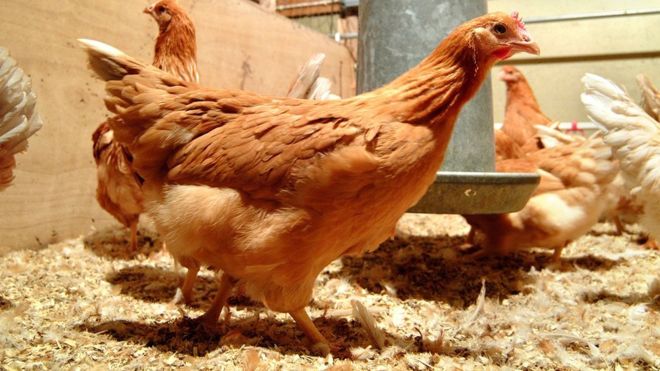The GM chickens that lay eggs with anti-cancer drugs

Researchers have genetically modified chickens that can lay eggs that contain drugs for arthritis and some cancers.
The drugs are 100 times cheaper to produce when laid than when manufactured in factories.
The researchers believe that in time production can be scaled up to produce medicines in commercial quantities.
The chickens do not suffer and are "pampered" compared to farm animals, according to Dr Lissa Herron, of Roslin Technologies in Edinburgh.
"They live in very large pens. They are fed and watered and looked after on a daily basis by highly trained technicians, and live quite a comfortable life.
"As far as the chicken knows, it's just laying a normal egg. It doesn't affect its health in any way, it's just chugging away, laying eggs as normal."
Scientists have previously shown that genetically modified goats, rabbits and chickens can be used to produce protein therapies in their milk or eggs. The researchers say their new approach is more efficient, produces better yields and is more cost-effective than these previous attempts.
"Production from chickens can cost anywhere from 10 to 100 times less than the factories. So hopefully we'll be looking at at least 10 times lower overall manufacturing cost" said Dr Herron.
The biggest saving comes from the fact that chicken sheds are far cheaper to build and run than highly sterile clean rooms for factory production.
Many diseases are caused because the body does not naturally produce enough of a certain chemical or protein. Such diseases can be controlled with drugs that contain the deficient protein. These drugs are synthetically produced by pharmaceutical companies and can be very expensive to manufacture.
Dr Herron and her colleagues managed to reduce the costs by inserting a human gene - which normally produces the protein in humans - into the part of the chickens' DNA involved with producing the white in the chickens' eggs.
Courtesy : bbc News
